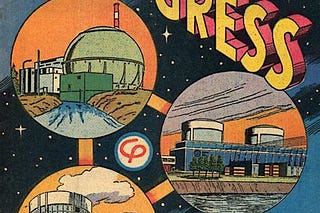My Budget response from The Conversation This week’s budget was Treasurer Jim Chalmers’ third and – for practical purposes – final for the current parliamentary term. Even if the 2025 election is delayed long enough to give Labor another budget, that speech would represent more of an election manifesto than any deliverable legislation. We are therefore now in a position to assess the Albanese government’s record on public spending and taxation. Most strikingly, the Albanese government’s electoral strategy has constrained it to do little more than tweak the policy settings it inherited from the previous government, and adopt them as its own. There’s nothing new about opposition parties campaigning on a “small target” strategy. Howard, Rudd and Abbott all did the
Topics:
John Quiggin considers the following as important: Uncategorized
This could be interesting, too:
tom writes The Ukraine war and Europe’s deepening march of folly
Stavros Mavroudeas writes CfP of Marxist Macroeconomic Modelling workgroup – 18th WAPE Forum, Istanbul August 6-8, 2025
Lars Pålsson Syll writes The pretence-of-knowledge syndrome
Dean Baker writes Crypto and Donald Trump’s strategic baseball card reserve
My Budget response from The Conversation
This week’s budget was Treasurer Jim Chalmers’ third and – for practical purposes – final for the current parliamentary term.
Even if the 2025 election is delayed long enough to give Labor another budget, that speech would represent more of an election manifesto than any deliverable legislation.
We are therefore now in a position to assess the Albanese government’s record on public spending and taxation.
Most strikingly, the Albanese government’s electoral strategy has constrained it to do little more than tweak the policy settings it inherited from the previous government, and adopt them as its own.
There’s nothing new about opposition parties campaigning on a “small target” strategy. Howard, Rudd and Abbott all did the same. But on attaining office, those prime ministers all became notably bolder.
In stark contrast, the Albanese government appears to have acted less ambitiously in office than it did when seeking election.
Constrained on both income and spending
This softness is likely due in part to the size of the commitments Labor made to eliminate any policy differences that could have cost the party votes in the 2022 election.
On the revenue side, Albanese rejected all the revenue-enhancing measures Labor had fruitlessly taken to the 2019 election.
What remained were the massively expensive Stage 3 tax cuts, which ensured the ratio of tax revenue to the size of the economy would shrink over the government’s term in office. This was only exacerbated by a decline in export earnings for coal and iron ore.
The restructuring of the Stage 3 tax cuts – hastily announced in the lead-up to the Dunkley by-election – did make them much less regressive.
But the modified version will only partially offset the the expiry of the low and middle income earners tax offset, and by my calculations will still deliver big gains to the top 40% of earners. More relevantly, at least in the budget context, the cuts’ cost in terms of tax revenue was unchanged.

The government is also constrained on the expenditure side. Albanese’s enthusiastic embrace of the AUKUS agreement commitment has loaded the budget with hundreds of billions of dollars in future commitments, with several billion already allocated in the current budget.
The failure of successive governments to find new sources of funding for the National Disability Insurance Scheme has only added to these difficulties.
Yet despite all these constraints, the government has been unable to resist a few (it hopes) vote-grabbing extravagances. Perhaps the most lavish was the decision to provide federal funding for a new football stadium in Hobart.
More recently, the government announced it would spend a billion dollars to chase the dream of a quantum computer, one of those revolutionary technologies that has been “just over the horizon” for decades.
And of course, the headline item in the current budget, a once-off $300 discount on every household’s energy bills.
Labor doesn’t look like Labor anymore

Welfare payments again missed out on a boost in this year’s budget. James Ross/AAP
The combination of these constraints with an imperative to deliver budget surpluses means little – if anything – has been put aside to pursue the traditional goals of a Labor government.
Instead, we’ve seen largely symbolic measures puffed up to appear impressive. Most of these are better viewed as adjustments to keep policy set by the previous government on course.
An automatic inflation adjustment for welfare benefits was touted by the prime minister as “the biggest increase to the pension in 30 years”.
But meanwhile, the government has steadfastly resisted pressure to raise Jobseeker benefits to a liveable level, reluctantly squeezing out an extra $20 a week last year (Scott Morrison gave $50).
The Housing Australia Future Fund is presented as a $10 billion program to deliver over 30,000 houses. But it will be delivered as a modest subsidy of just $500 million annually, enough to build perhaps 2,000 modest homes per year. The program has since been overtaken by more extensive action at the state level.
For university students, the government has materially changed the HECS indexation formula. But it has left in place the Job Ready Graduates fee structure, a poorly thought out increase in the cost of degrees in the humanities and other subjects pushed out in the dying days of the Morrison government by Education Minister Dan Tehan.
On top of this, the underfunding of public schools has if anything become worse, with the ambitions of the Gonski program indefinitely deferred.
On health, the government has taken measures to arrest the alarming fall in bulk billing which began under the Morrison government. But it’s yet to return rates to the levels present when it took office.

Rates of bulk billing have steadied, but remain at worrying lows. Dave Hunt/AAP
More ambitious proposals – like free cancer treatment and dental care for pensioners – were abandoned after the 2019 election, and have not resurfaced.
No guarantee of a second term
The “three-term” theory pushed by the Albanese government’s supporters was that a solid performance in the first term of office would lay the groundwork for more transformative policies in the (assumed guaranteed) second and third terms.
Leaving aside the fact that a second term no longer appears certain, there seems to be no evidence this is actually happening.
Share John Quiggin’s Blogstack
Read my newsletter

·
11 Comments

| dennis hutchMay 18John, for me Albanese has been a bitter disappointment. Prior to his election I had no real opinion of him; I didn’t know him, he appeared to be a reasonable person. But now, nothing but disgust, his only ambition has been to get re-elected.I get that people thought Shorten lacked charisma, but I’ve always thought it was vastly overrated. I think Australia missed out when he lost, and he lost because of our collective greed. |
| Paul NortonMay 18I get the strong impression that the Albanese Government has made the strategic calculation that it cannot win a public political argument with the Coalition over any except a small set of issues (and then only if its own position is only incrementally different), and so it has decided to refrain from doing anything that would require or bring on such an argument. |
May 11•

Mar 29•

Marc Andreesen’s 1990s version of techno-optimism
Oct 24, 2023•

Jan 12•

Back to the office: a solution in search of a problem
Managers need to recognise that the best way to dissipate authority is to fail in its exercise
Feb 25•

Jul 22, 2022•
Oct 15, 2023•

In defence of effective altruism
Don’t judge an idea by its worst advocates
Nov 21, 2023•

… but naval fans will never admit it
Mar 27•

The war to end war, still going on
Apr 25•

© 2024 John Quiggin
Privacy ∙ Terms ∙ Collection notice
Substack is the home for great culture
